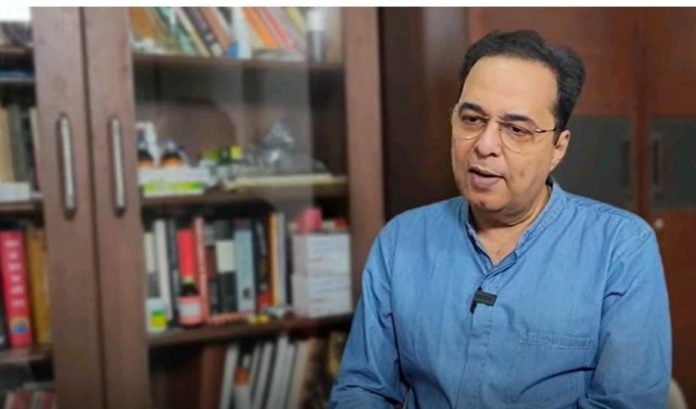Bengaluru: In a recent interview with journalist Sohit Mishra on his YouTube channel, SM Official, Mumbai-based journalist and activist Raju Parulekar raised a red flag over the increasing discrimination and hostility faced by Muslims in India. Highlighting a troubling pattern that has emerged over the past decade, Parulekar warned that this rising tide of violence and prejudice is pushing the nation toward a severe social crisis.
The interview was sparked by a disturbing incident where an elderly Muslim man was verbally abused, beaten, and falsely accused of carrying beef while traveling on a train in Maharashtra. Parulekar emphasized that such attacks are not isolated incidents but part of a broader, more insidious trend of systemic discrimination against Muslims. He traced the roots of this hostility to the ideologies of M.S. Golwalkar and Vinayak Damodar Savarkar, key figures in the Rashtriya Swayamsevak Sangh (RSS).
During his conversation with Mishra, Parulekar did not shy away from naming the sources of the growing hatred. He argued that Muslims are increasingly being demonized by those in power, not based on facts but through a constructed narrative that paints them as criminals and outsiders. Parulekar linked this demonization to the 2002 Gujarat riots, describing them as a “laboratory” where these dangerous prejudices were tested and solidified. He also referenced theories, like those from Justice Nanavati, suggesting that the fire in the Godhra train tragedy may have been ignited from within, further fueling Islamophobia in India.
Parulekar delved deep into the ideological roots of this hostility, drawing connections to the philosophies of Golwalkar and Savarkar. He pointed out that both ideologues viewed Muslims, Christians, and Communists as primary enemies, and that Muslims have been projected as adversaries to strengthen the political power of those in authority today. Questioning the selective acceptance of Muslims, he asked, “What do you mean when you say A.P.J. Abdul Kalam was a ‘patriot Muslim’? What does that imply?”
He also expressed grave concern over the celebration of rapists in the Bilkis Bano case, linking this behavior directly to the philosophies of Golwalkar and Savarkar, which have deeply influenced the RSS.
Parulekar pointed out the hypocrisy within the BJP, where leaders in states like Goa and the Northeast openly support beef consumption while demonizing Muslims for it elsewhere. He argued that Islamophobia, which was not a significant issue in India 10 years ago, has now taken deep root. Dangerous narratives like, “He is a Muslim, but he’s a nice person,” are propagated without understanding the implications of such statements.
He criticized the government for bulldozing the homes and vehicles of Muslims under the guise of legality, questioning how vehicles could suddenly be deemed illegal. Parulekar asserted that the RSS does not even consider Muslims as human beings, highlighting the depth of the dehumanization occurring.
The conversation also touched on the failure of the political opposition to stand up for Muslims. Parulekar criticized the opposition’s reluctance to address the unique challenges Muslims face today, accusing them of diluting the issue by lumping Muslims together with other minority groups. He argued that this approach contributes to the further marginalization of Muslims in Indian society.
In a chilling comparison, Parulekar drew parallels between the current climate of hatred against Muslims in India and the propaganda that fueled the Rwandan genocide. He accused mainstream media channels like India Today and Zee of “poisoning the public mind against Muslims,” warning that such irresponsible journalism poses a real threat to the nation’s social fabric.
Parulekar issued a strong call for immediate and decisive action, emphasizing that Hindus and Muslims are not adversaries but fellow citizens who deserve equal rights and opportunities. He warned that if this hatred is not addressed urgently, India risks burning in the fire of communal hatred, with devastating consequences for all.
Raju Parulekar, a veteran journalist and activist who also played a significant role in the India Against Corruption movement, has long been an advocate for social justice. His interview with Sohit Mishra serves as a stark reminder of the growing crisis and the urgent need for a united stand against hatred and division.




